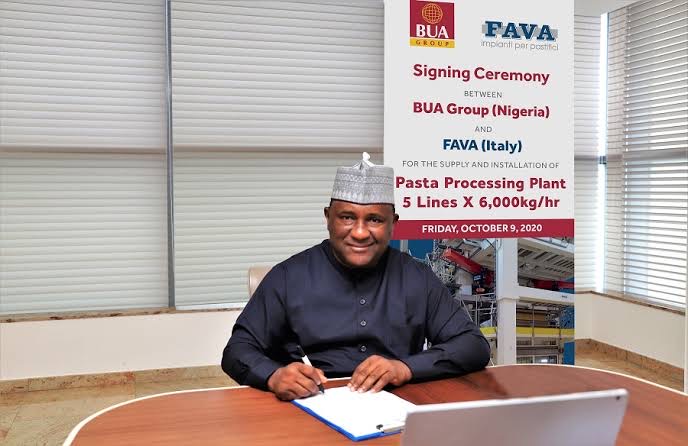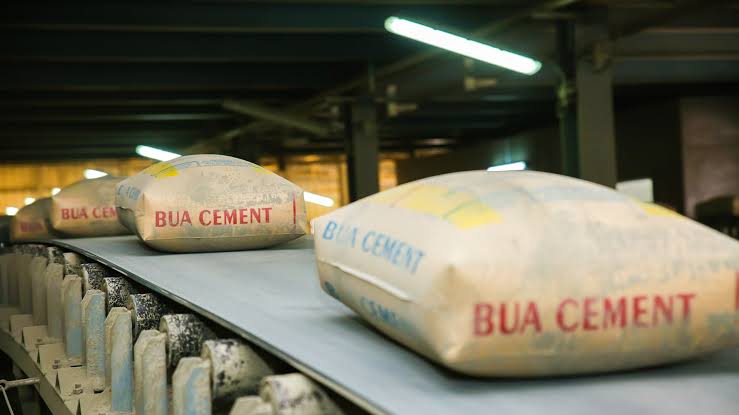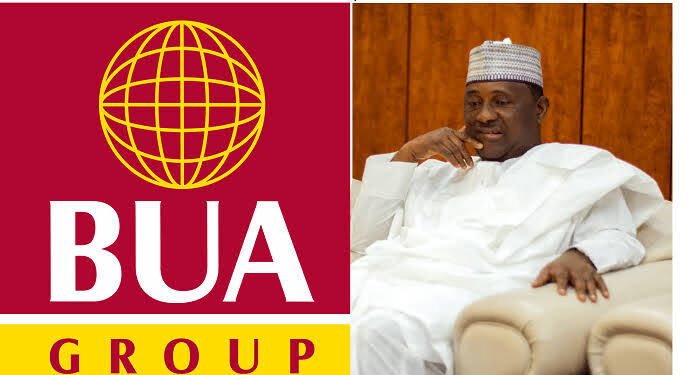Chairman of BUA Cement, Abdul Samad Rabiu said yesterday that cement dealers had thwarted the company’s plan to sell cement at N3,500 per bag last year.
Speaking at the company’s eighth annual general meeting in Abuja, Abdul Samad Rabiu also said the company sold over one million tonnes of cement to traders at N3,500 per bag with the aim of passing the profits on to the end user, but the traders sold one bag. The cement will be sold to consumers at N7,000 to N8,000.
He said the company had to abandon the policy as the intervention did not help subsidize dealers.
According to him, BUA Cement could not control prices in the open market and therefore could not stop traders from making huge profits from high interest rates.

He added that the devaluation of the naira and the removal of fuel subsidy last year also contributed to the policy being unsustainable.
Rabiu explained, “So, a lot of the dealers took advantage of that policy. Rather than pass the low prices to the customers, they were selling at even double the price we sold to them.
“Some were selling at N7,000 and 8,000 per bag. They made a lot of money with the very high margin. I think we had sold more than a million tons at N3,500 before we realized what the dealers were doing.
“And then, because of the issues that Nigeria faced at the time about devaluation of the Naira last year and the removal of fuel subsidy, we could not continue that policy.
“We wanted that price to stay at that level but dealers refused. So, we could not sustain that simply because we did not want to be in a situation where we are subsidizing dealers.
“I’m referring to the point when the foreign exchange rate moved from about N600 to maybe N1,800 to the US Dollar. So, it became even more challenging and more difficult for us to actually sustain that price policy.”
However, he mentioned the company was still working to ensure that prices didn’t rise as much as the naira devaluation increased in percentage terms.

Here is what he said, “If you see the exchange rate then, and the exchange rate today, you will see that cement is actually cheaper today than what it was last year, the reason being that if the dollar was up the costs go up by same margin and the price of cement should actually be, maybe, N10,000 Naira per bag.
“If the price of cement went from 4,000 naira at the beginning of last year to 4,000 naira and to 6,000 naira today, that is only a 50% increase.
“So, we directly pushed to ensure that the price of cement is not getting higher than what it is today.
“But then again, you have areas where everything is dollar-dominated. Energy is the biggest cost. And our energy today is denominated in dollars. We buy gas to power our plants mainly. And gas is priced in dollars.”
The chairman revealed that the monthly bill for one of the BUA factories is about 15 billion naira, maybe 16 billion naira. It was 3 billion or 4 billion naira before. This is just an example.
According to the financial report submitted by the company’s board of directors, the company recorded a significant increase in sales in 2022, up 27.4% from 361 billion naira to 460 billion naira, due to market share expansion. However, the devaluation of the Naira in June 2023 and its continued depreciation and rising inflation exposed the company to increasing price pressures affecting its cost of production, resulting in a 39.5% decrease in total costs, naira-for-naira, to N276 billion; a figure that increased to N197.9 billion in 2022.
A net foreign exchange loss of N70 billion was recorded within the same period, of which N52.5 billion was due to financing costs.
Despite these challenges, the company announced a net profit after tax of N69.5 billion and a dividend of N2 per share.

































